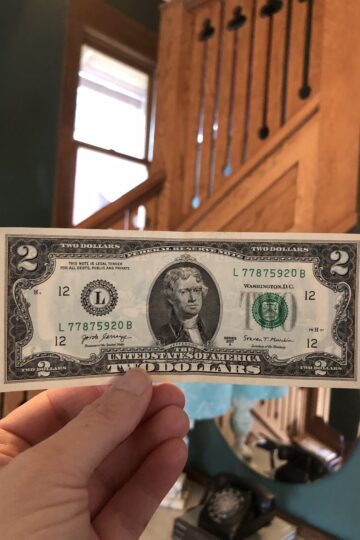The Age Of Non-Consumerism
I was listening to National Public Radio the other evening.
Actually, I was kind of half-listening, as I was going back-and-forth from the kitchen to the dining room. Busying myself with the daily task of getting dinner on the table.
Then I heard the words, "The Age Of Consumerism May Be Over."
Hmm . . . maybe this is something I should listen to.
Daniel Schorr's seasoned voice suddenly caught my full attention, (a difficult task, as I am the queen empress of multi-tasking) when he uttered these words:
"Consumption may be equated with patriotism, but consumption has taken a hard hit in the current economic crisis. It has created a kind of vicious cycle in which hard times reduce spendable income, which reduces purchasing, which reduces production, which piles up inventories, which leads to company closings and layoffs, which reduces purchasing power, which - well, you get the idea."
I took a rare step . . . and stood still.
I wanted to listen to every word.
Schorr hooked my attention with these sentences:
"The Pew Research Center reports a sharp increase in the number of people planning to rein in their spending. And more people say Americans should learn to live with less . . . . America may no longer be the wonder of the world as the greatest shop-until-you-drop nation."
Live with less?
No more shop-until-you-drop?
I have certainly heard the argument that to only buy used is to make a choice not to support the economy. But I've always disagreed.
- When I buy household goods and clothing at a Goodwill thrift shop, I'm supporting a charity whose mission is to employ those who otherwise have difficulty find employment.
- When I buy from garage sales or craigslist, I'm putting my money directly into the hands of people who need it.
- Because I choose to not buy much at all, I have the money available to pay my sister to landscape my backyard. (Job creation.)
- When I live within my means and stay out of the malls, I'm able to pay my mortgage and not have my house foreclosed.
- When I choose to not buy brand new, cheaply made goods from China, I'm making a statement about foreign manufacturing practices.
American consumers have gotten themselves into tremendous debt. Whether that's from a house they can't afford, or restaurant meals paid for with credit cards. All in the name of supporting the economy.
If that's what it takes to support the economy, I'm having none of it.
I am a Non-Consumer, and I support an economy of conscious consumption. I hope that an outcome of the current economic crisis is to empower people to learn how to live within their means. And to learn that living with less can be joyful and fulfilling.
Click here to read or listen to Daniel Schorr's editorial.
Katy Wolk-Stanley
"Use it up, wear it out, make it do or do without."



You are right, when you are a cheapskate, you still spend some money. You can chose to spend money at a restaurant, or you can spend some money at a local grocery store or butcher to cook your own meal at considerable saving. The quality will be much better than fast food or cheap restaurants.
There is also the hidden cost of living beyond one's means. Stress is a silent killer: leading to heart attacks and a host of other health issues. When you are constantly afraid of that unexpected bill or how you will pay the next bill, that is stress and that will ruin your health in the long run. By living frugally and paying off debt, you can reduce the stress and enjoy better health.
Katy, Thanks for this. You put into words what I've been thinking for a long time. Another cost of living beyond one's means is the impact to the environment. You might be interested in this article: http://www.orionmagazine.org/index.php/articles/article/3628
Best wishes,
Patrice
Tacoma, WA
Over consuming ruined the American economy. That’s the root why people lose their houses and live in the credit card debts. Just a simple rule, live within your means!
Great post - thanks for saying so succinctly what I've been trying to cobble together in my head for some time now. 🙂
Buying used doesn't hurt the economy! That is a ridiculous argument. For example, when you buy used clothing at a consignment store you are helping your LOCAL economy, the AMERICAN economy. What you are not supporting by buying used clothing is child labor, pollution, and unsafe factory conditions...which is what you are supporting most when you buy new stuff manufactured in China.
But as the economy slows down there will be less (good) used stuff and it will probably become more expensive as more people show for it.